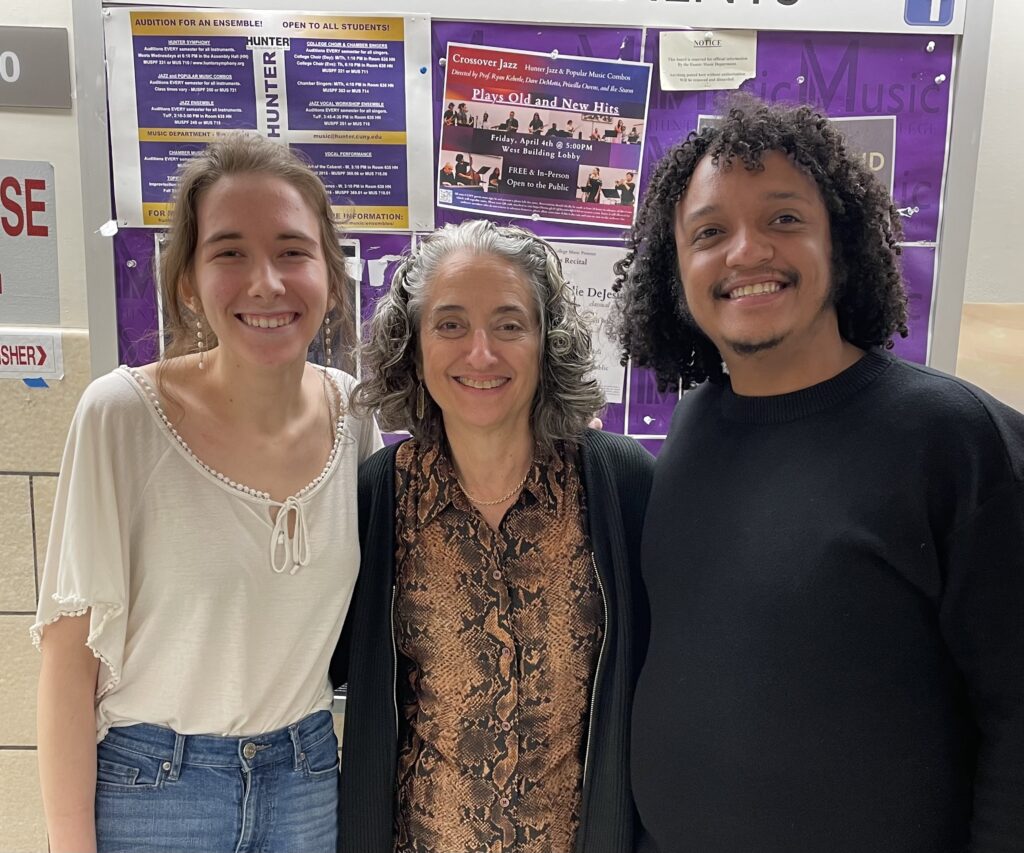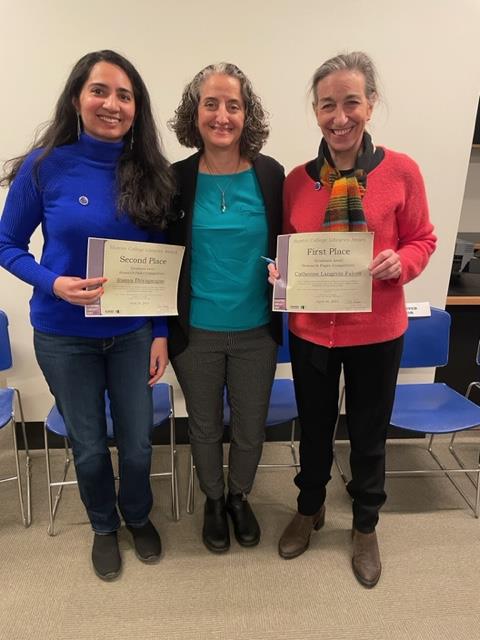Working with the canon in major Music History courses: confronting issues of empire and gender in Puccini’s Madama Butterfly. Here, students were charged with justifying why or why not Butterfly should continue to be produced, and how they would produce it. Jasmine Mack, who granted permission to share her video for pedagogy purposes, was really creative with it, and dug deeply into context within and beyond the readings. Clips that she uses are from a production by Pacific Opera, which has the Japanese characters sing in Japanese and the Americans in English.
Music Students Featured at Hunter College Undergraduate Research Conference
on May 14, 2025 in news

The Music Department was well represented at the Hunter College 2025 Undergraduate Research Conference on April 30. Two of our majors who have been mentored by our own Prof. Catherine Coppola in the Mellon Public Humanities and Social Justice Program were selected to present their work.
Renee Ricevuto gave a slideshow presentation titled “Girls Who Murder: The Ironic Prima Donna in Opera and Pop Music.” Renee explores violent associations with femininity and applies Sabrina Carpenter’s ironic gender performance in ways that can be used to reinterpret operatic heroines such as Lucia. Her original stance views irony as a tool that enables the diva to critique patriarchal compositions through performance.
Tyler Diaz offered a poster presentation on “De-centering Europe in American Music Education: Francis Johnson and Philadelphia’s Black Metropolis.” At the heart of the project is Tyler’s detailed scholarly study of the music and the context in which Francis Johnson worked, which he presented to an enthusiastic audience at the November 2024 conference of the American Musicological Society.
Hunter Music Graduate Students Win First and Second Prizes for Millenson Library Research Awards
on April 24, 2023 in news
The Music Department swept the Millenson Library Research Awards in the Graduate Category. Catherine Langevin Falcon took first prize for her paper, “Marie, the daughter of the 21st Regiment: proto-feminist or sentimental heroine?”, and Ramya Thiyagarajan took second prize for her paper, “Salome: Of Femme Fatale, Gaze and Rejection of the Feminine.” Both were written for Professor Coppola’s Fall 2022 graduate course on Women in Mozart’s Operas.
The winners will be celebrated at the Library Day event on April 26, 2:30-4 pm, in the Faculty Center of the Library (HE540). Winners and their professors will participate in a panel discussion of the work, with an awards ceremony to follow.

Pedagogy Caucus on Teaching the Eighteenth Century: A Poster Session, American Society for Eighteenth-Century Studies, Denver, CO, March 20, 2019.
Poster presentation, “Women and Power in Mozart’s Operas,” the Quotations illustrate how my courses convey the relevance of these canonic works, for which we focus on close reading of the music and text in light of the history of women and power. We trace demeaning moments alongside humanizing ones just as Enlightenment progress was not made in a straight line. Likewise, we do not live in a completely changed context, and to view 18th-century works from a morally superior perch only adds to the gulf between them and our students. There was plenty of moral repugnance to go around in the 1700s:


